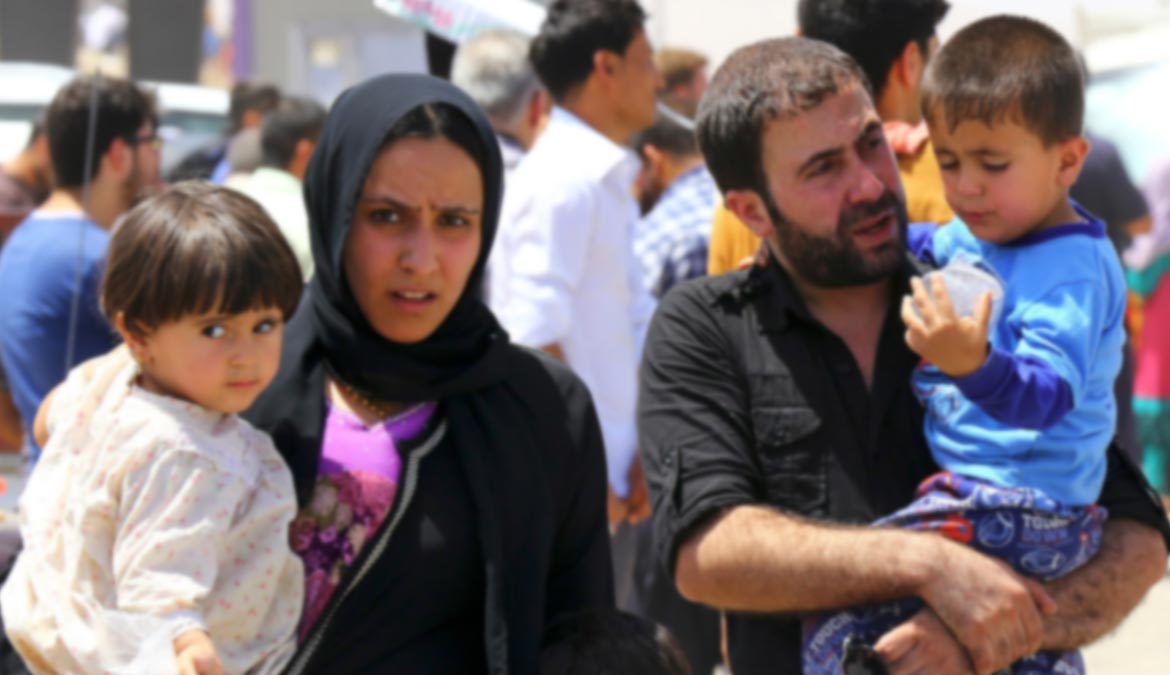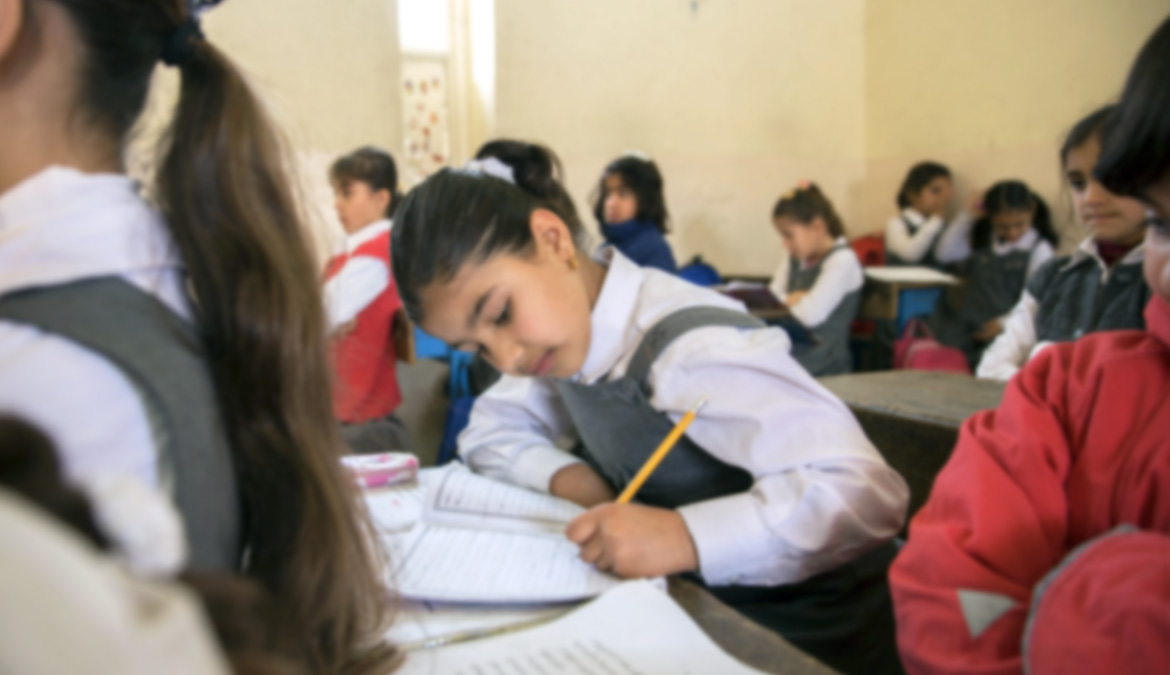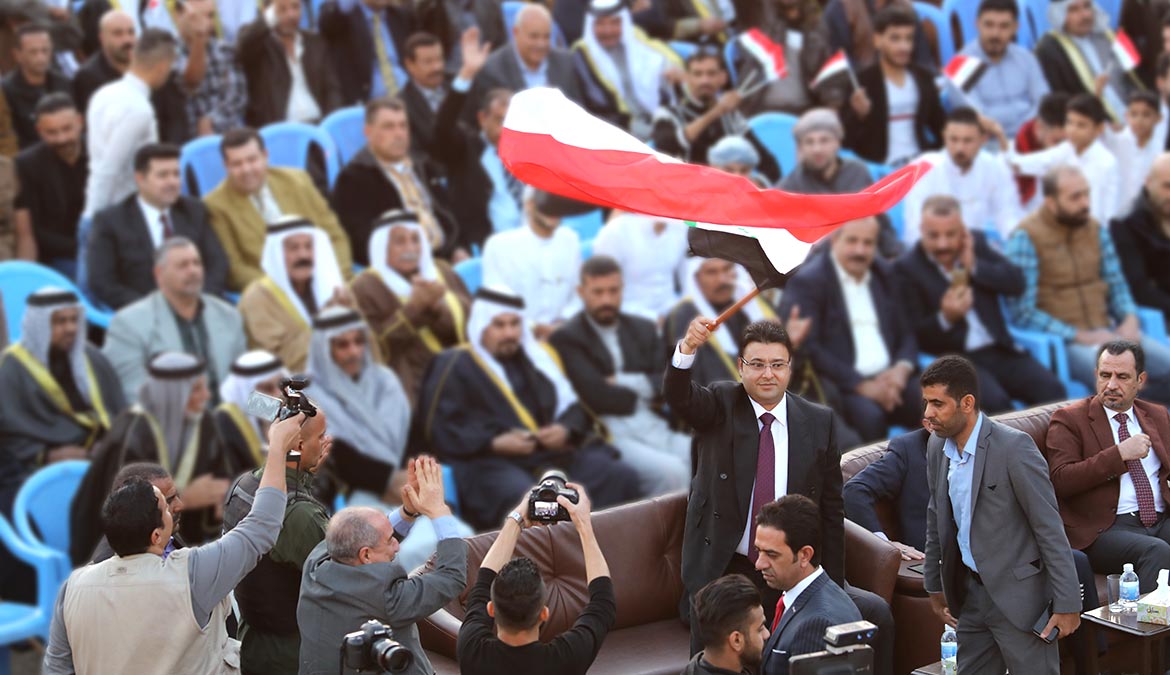
- Separate between the powers in which the government is divided into three branches: the executive, the legislative and the judicial.
- Focus on building a strong sense of national identity and a united Iraq that will bind all Iraqis across common intellectual and philosophical concepts.
- Building the concept of political democracy as an integral part of the political process as a starting point to solve problems related to culture, language and other matters through which joint Iraqi component lives.
- Emphasize the achievement of civil peace and equality among the citizens through the principle of equal opportunity.
- Reject terrorism in all its forms (political, religious, racial, intellectual and physical forms), fight it by all means and consider its exercise or promotion as one of the major crimes punishable by law through the most severe penalties.
- Establish the principle of political pluralism, peaceful alteration of power, constructive dialogue and persuasion without prejudice.
- Confront sectarianism that serve as a model for fanatic thought for a certain sect, and the exclusion of a sect or other sects by spreading hatred, grudges, and murder. The most dangerous of which is the political sect; as it aims, in essence, to use the religion from a sectarian basis for political and domestic purposes, and it is a pattern of political thinking with a sectarian or religious cover practiced by opportunist politicians to achieve their personal, partisan and factional interests. In short, the sectarianism not only ravages the body of the Iraqis and claimed millions of claimed and continues to claim hundreds daily, but its mechanism of governance (Quota) is also responsible for all aspects of financial and administrative corruption and the deterioration in the parliamentary, governmental and judicial performance. Here, we must emphasize the fact that it is not possible to politically exit this bloody scene without stopping and eliminating the principle of sectarian quotas; provided that religions, doctrines and sects will not be compromised; as this is not possible and it is not useful or required, but it can be done by reducing the politicization of religion and doctrine or the ideologization of politics.
IN ORDER TO DISMANTLE THE SECTARIAN PROJECT AND CONFRONT IT, THE FOLLOWING MUST BE CARRIED OUT:

- Consolidate the national and religious commonalities as constants to govern the differences, regardless of their extent, so as to reduce the margins of disagreements. It is important to emphasize the fact that we are all Iraqis sharing the bond of citizenship and have our common history and our common interests and destiny. Furthermore, it is necessary to use the religious commonality to achieve national unity, since the majority of the Iraqi society consists of Muslims, who have a single religion Quran, prophet and Qibla.
- In addition, it is not less important to emphasize the Arab identity for the majority population, as they belong to a single nation with a single language, culture and civilization and history; provided that such an approach will not be considered from racial or chauvinist aspect; as this approach does not neglect the national and religious identities of the other Iraqi categories.
The Organization deals with this matter as one of the successful means to confront and dismantle the sectarian project; because sectarianism is present in the Arab and Muslim body in Iraq.
- Avoid digging up historical controversial issues and bury them into oblivion; this requires silencing the caretakers of ignorance and intolerance and the professionals in promoting sectarianism, because the sectarian dilemma that is being politically invested today is a historic dilemma and can be overcome by recalling the scenes of national unity through the history of modern Iraq.
- The need to establish civic awareness, which is a condition for peaceful coexistence, through the establishment of fair and effective institutions; as their presence will make the individual less willing to cling to the sectarian biases; in addition, the lack of justice will make the individual look for it in the history, even if it was fake.
- It is necessary to provide and support all the social, economic and political conditions and reasons that make the individual’s interests linked more to the national civil identity rather than the subsidiary identity, especially racism and sectarianism; thus contributing to the development of the civic consciousness, and here we must legislate laws denying all the racial acts of all kinds, especially sectarianism.
- Reveal the falsehood of sectarian leaders, who seek financial, moral and political profit by fueling sectarian conflict. Dealing with these leaders should be on the two levels; first, the punitive level; and second, the cognitive level, with the need to expose their puritanical disclosure.
Activate the available national mechanisms to achieve the mixing between the Iraqis, instead of what is happening now from creating zonal and sectarian barriers; and that is through activating the principle of appointment in public office without regard to doctrine, religion, nationality or province through the completion of the formation of the Federal Service Council and limiting the appointments therein; in addition to legislating the Compulsory Service Law; as these two mechanisms were tested and applied until 2003, and they gave positive results in the framework of strengthening the national unity.
- We should stop accusing the foreign parties through the sectarian and racial mongering and we must think before we blame others; as the foreign factor invests in the internal division situation; in order to achieve its own interests.
- Work on neutralizing Iraq from the abyss of sectarian, regional and international conflict, and not to engage in sectarian wars by proxy.
- Stand in face of the regional and international interventions that operate through its branches inside Iraq, which is represented by the sectarian and obscurantist political powers, and stand in face of their schemes by all means.
- Commit to the unity of Iraq’s land and people and work on establishing the principle of one land and one people.
- Work on amending the Constitution in line with the aspirations of the Iraqi people to maintain the independence of the political decision, keep the security and sovereignty of Iraq, uphold democracy and respect the human rights.
- Work on the reduction of marginalization and exclusion for political and sectarian purposes; in addition to the deliberate negligence of the judiciary’s role in dealing with matters related to people’s lives and public and private funds.
- Adopt a national military doctrine in establishing the armed forces and the security services based on professionalism, and avoid the political factionalism, which will contribute in protecting the nation and the citizens.
- Rely on the Iraqi authorities in solving Iraq’s problems, and not to allow foreign countries to intervene, which will have a negative impact; thus complicating the problems and marginalizing the role of the Iraqi people in their participation in the management of its affairs.
- Restrict weapons in the hands of the State and stop the alarming growth of the society’s militarization.
- Respect the human rights and consolidate its principles in the society.

![]()
![]()





